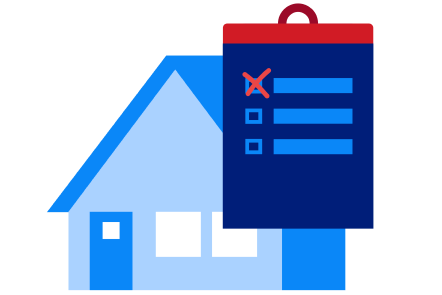Keep an eye on your credit.
It’s a good idea to find out where you’re starting from when it comes to your credit score and shopping for a mortgage. If you’re a current U.S. Bank client, you can check your credit score for free with our tool so you know where you stand. And anyone has access to check their report once a year for free at annualcreditreport.com. When reviewing your credit report, look for errors or anything else that doesn’t accurately reflect your true credit history. If you find anything, dispute it with the credit bureau or the creditor reporting the information.






